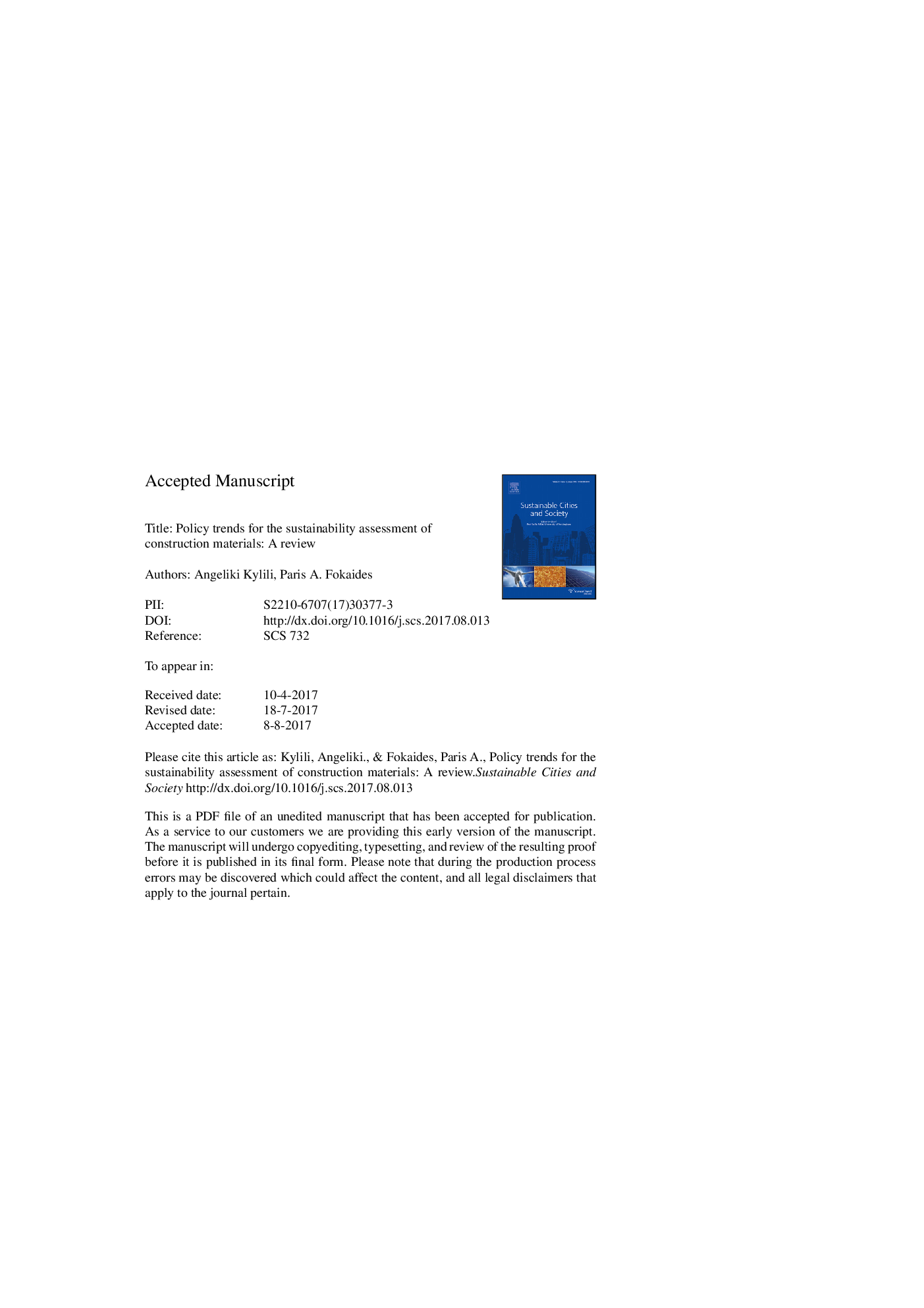| Article ID | Journal | Published Year | Pages | File Type |
|---|---|---|---|---|
| 4928071 | Sustainable Cities and Society | 2017 | 24 Pages |
Abstract
The burden of the European construction and building sector on the natural environment is apparent from the data, which reveal the energy, materials, and water consumption, and the waste generation associated with the building sector. Yet, significant efforts in improving the environmental awareness and sustainability of the construction sector are arising through the introduction of the numerous regulations, directives, and initiatives. This review work provides an overview of the most relevant existing European policies and legislation for the built environment, and the construction materials in particular. The implementation of a comparative assessment against the key elements of the international legislation and efforts enables the definition of the responsiveness of the EU in enacting policies that ensure the environmental sustainability of the sector, as well as identifies prospects for further improvement. Working towards the increase of the sustainability of the construction sector in a framework of holistic life cycle considerations is promoted in the current legislation, where identifying opportunities for energy and cost savings, utilizing natural resources efficiently and achieving waste minimization is endorsed. This work can be exploited from both policy- makers and the scientific community as guidance for transforming in a truly green sustainable construction market. The conclusions of this work indicate that the sustainability of the built environment will come through the increased use of alternative, recycled, natural and unconventional construction materials and thermal insulation materials, the exploitation of prefabricated building elements, the integration of LCA with BIM, the employment of multi- objective optimization methodologies, and the development of country- specific data for the implementation of Life Cycle Assessment (LCA) studies. These fields, as well as other factors such as globilisation and government intervention, are critical for fulfilling the vision of the European Union (EU) and will require systematic approach for their incorporation in the relevant policies to be developed and introduced in the near future.
Related Topics
Physical Sciences and Engineering
Energy
Renewable Energy, Sustainability and the Environment
Authors
Angeliki Kylili, Paris A. Fokaides,
